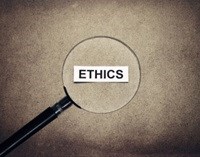Ethical conduct in the workplace is of the utmost importance. Infusing a culture of moral sensitivity throughout an organisation is not just in line with the survival of society it is also the key to the survival of business.
This is according to Kay Vittee, CEO of Quest Staffing Solutions, who said: "Unscrupulous dealings can result in job losses, companies can be forced to shut their doors and individual and corporate reputations can be ruined.
"It is particularly destructive when the organisation's leaders are guilty of breaches of ethics, because of their influence and wide-reaching reputation as role models in business, you may remember the names Enron and Bernie Madoff."
Real-world examples of bad business ethics:
Enron is a well-known example of willful corporate fraud and corruption. The Enron Corporation was an American energy, commodities, and services company based in Houston, Texas. At the end of 2001, it was revealed that Enron went bankrupt for using unethical and fraudulent financial accounting practices. Before its bankruptcy, Enron employed approximately 20,000 employees.
Bernie Madoff fleeced thousands of people and will go down in history as the architect of America's biggest Ponzi scheme. Madoff convinced thousands of investors to hand over their savings, falsely promising consistent profits in return. He was caught in December 2008 and charged with 11 counts of fraud, money laundering, perjury, and theft. He was sentenced to 150 years in prison.Creating an ethical workplace culture
Vittee believes it starts at the top: "Leaders who value justice and fairness can have a positive impact on the practice of ethical behaviour and serve as role models for others to aspire to within the company. Systems and procedures should be implemented within the business in order to put virtuous values into practice.
"Companies can dramatically improve their integrity by implementing effective ethics and compliance programmes to reduce employee misconduct and improve every key measure of workplace behaviour."
Drawing on data from the Ethics Research Centre's (ERC) recent National Business Ethics Survey, the study also credits effective programmes and strong ethics cultures for making it more likely that employees will report wrongdoing when they see it. Nearly nine out of 10 employees, 87%, who observe violations at large companies with effective programmes report those violations, compared to just 32% who report wrongdoing when programmes are lacking.
Vittee said: "This is significant because reporting is essential for identifying and eliminating potential ethical risk."
For both large and small companies, the survey provides a snapshot of trends in workplace ethics and states that the percentage of companies providing ethics training rose from 74% to 81% between 2011 and 2013. Two-thirds of companies (67%) included ethical conduct as a performance measure in employee evaluations, up from 60 % in 2011. Almost three out of four companies (74%) communicated internally about disciplinary actions when wrongdoing occurs.
Five key steps to creating and maintaining an ethical environment:
Ensure that you're reinforcing the ethical behaviour expected in all activities, such as training, performance reviews, mentoring and discipline processes;
Practice zero tolerance. Implement appropriate consequences and praise proportional to good or bad behaviour;
The values you hope to establish should be well defined in the form of a manual, displayed on the walls and in detailed induction and recruiting literature;
Be accountable and learn from mistakes. Be certain that as a manager your conduct models what you expect from your employees and vendors; and
Creating and enforcing the business code should be at the heart of the company.
"Having a code of ethics for your business is important because it communicates how you want your company to grow and thrive in the future. A healthy ethical environment equals a healthy financial bottom line," concluded Vittee.



































